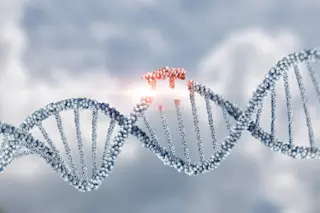Update: First, people coming to this weblog for the first time should know that I moderate comments. So if you leave an obnoxious one it’s basically like an email to me (no one will see it). Second, the correlation between height and intelligence is not that high. This association is probably not going to be intuitively visible to anyone, but rather only shows up in large data sets. So please stop offering yourself as a counter-example of the trend (also, the key is to look within families, because the signal here is going to be swamped by other factors when you compare across populations). Third, a friend has sent me another paper which does confirm that even within sibling cohorts there does seem to be a correlation between height and I.Q. The problem is that it is a very small one, so you need large data sets with a lot ...
Why are taller people more intelligent?
Explore the intriguing correlation between height and intelligence, revealing how genetics and assortative mating play roles.

Newsletter
Sign up for our email newsletter for the latest science news
More on Discover
Stay Curious
SubscribeTo The Magazine
Save up to 40% off the cover price when you subscribe to Discover magazine.
Subscribe












